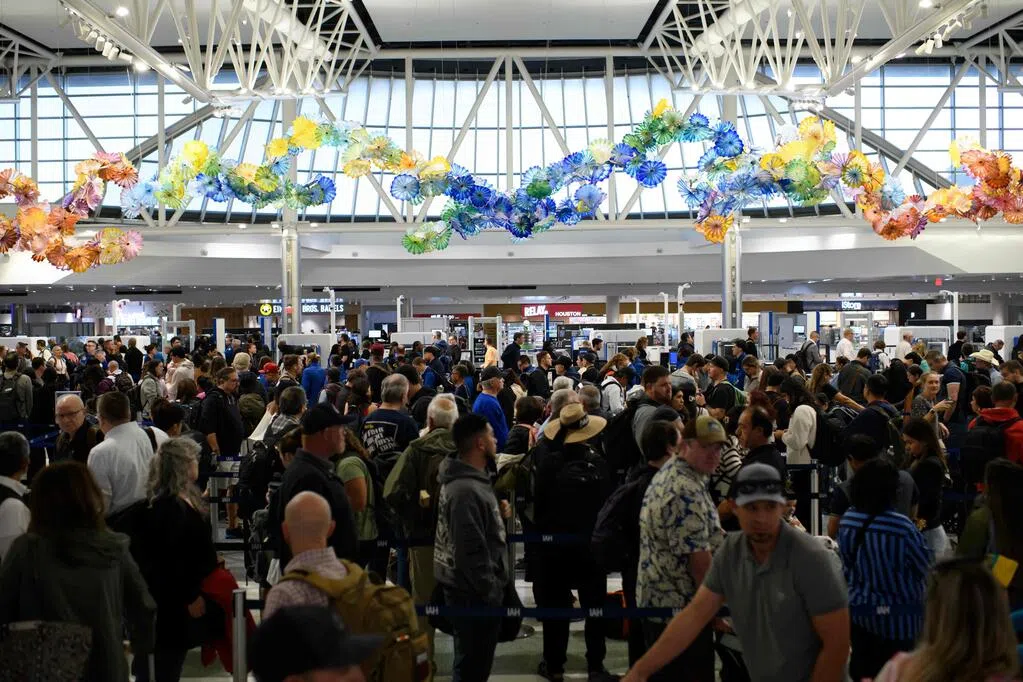(Washington, D.C.) The U.S. federal government shutdown has now lasted 40 days, with the Senate finally passing a temporary funding bill to end the widespread crisis. The bill will provide most federal agencies with their current funding levels until the end of January and includes three full-year funding bills.
This round of government shutdown in the United States is the longest in history, officially reaching 40 days on Sunday (November 9). The Senate held a procedural vote on a temporary federal funding bill that evening, passing it with 60 votes in favor and 40 against, the minimum threshold required to overcome Senate obstruction of proceedings.
This temporary funding bill had previously passed the House of Representatives. Following the procedural vote, the yield on the benchmark 10-year U.S. Treasury note rose by 4 basis points to 4.14%. The Senate will then amend the bill and hold a formal vote.
The bill provides funding for most federal agencies, allowing them to maintain their current levels until January 30. The bill also provides full-year funding for the Department of Agriculture, the Department of Veterans Affairs, military construction projects, and the operation of Congress.
The bill also provides year-round funding for the SNAP (Social Security and Personal Aid Program). This welfare system, which supports the livelihoods of tens of millions of low-income individuals, faced the risk of running out of funding due to the prolonged federal government shutdown.
Further Reading


The bill also prohibits federal agencies from laying off employees before January 30 and mandates back pay for all federal employees, including military personnel, border patrol agents, and air traffic controllers.
However, the Democrats' demands are far from being met. Democrats have consistently demanded a one-year extension of Medicaid, which expires at the end of this year, but Republicans insist on restoring government operations before discussing Medicaid.
Sources familiar with the matter revealed that Republicans and a minority of Democrats who refused to engage with their party leadership reached an agreement to vote in December on extending the Affordable Care Act (ACA) subsidies. Senate Majority Leader Thune pledged that the vote would not be later than the second week of December.
After passing the formal vote, the temporary funding bill still needs approval from the House of Representatives and then be sent to Trump for his signature, a process that could take several days.
"It looks like the shutdown is about to end," Trump told White House reporters before the procedural vote.
Prashant Newnaha, senior Asia-Pacific interest rate strategist at TD Securities, also said, "Market sentiment that the US government shutdown is about to end is heating up. Our expectation is that the House will vote on Wednesday (12th) and the government will reopen on Friday (14th)."
The prolonged shutdown has forced tens of thousands of federal employees to work without pay, exacerbated the shortage of air traffic controllers, and caused flight delays or cancellations for hundreds of thousands of passengers. Transportation Secretary Duffy ordered flight reductions at 40 major airports last week to alleviate pressure on air traffic controllers.
National Economic Council Director Hassett said that if the shutdown continues, especially if air travel cannot return to normal levels before Thanksgiving on the 27th of this month, US economic growth in the fourth quarter could turn negative.
The flight reduction order entered its third day on Sunday. More than 2,800 domestic flights were canceled that day, and more than 10,200 flights were delayed. According to the directive, the flight reduction will increase to 10% by this Friday.
Duffy warned on CNN that the situation could worsen as Thanksgiving approaches. "In the two weeks leading up to Thanksgiving, air travel will plummet to a trickle... If the government doesn't reopen, flights will be drastically reduced, and many passengers will be unable to board."



